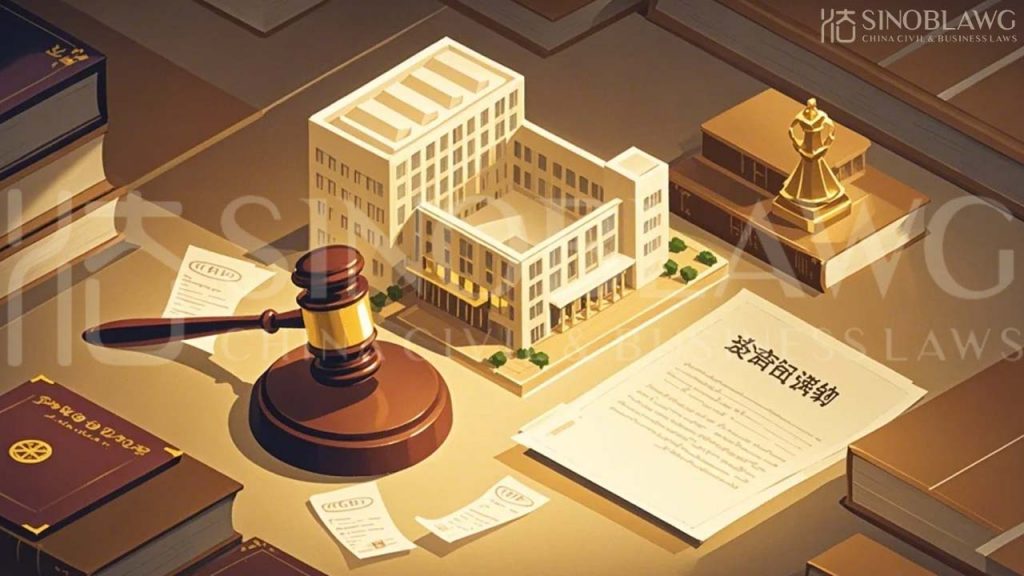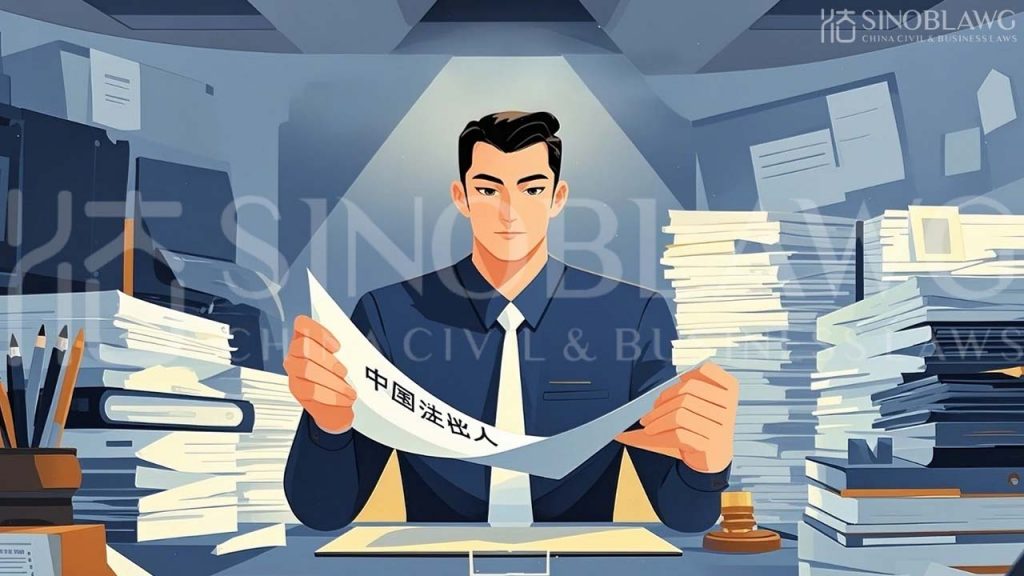This is not a new topic on this blog. However, it prompted me to look further into the issue when I realized that in judicial practice, courts are actually very much divided on this issue.
Following the company registered capital reforms initiated back at the end of 2013, the market has witnessed many newly setup companies that have a huge amount of registered capital which is to be paid up over a long period of time such as 20 years, 30 years or even 100 years, as is stipulated in the articles of association of the company. Once set up by registering the company with company registry authority, a company can run no matter whether or how much real capital has been paid in by their shareholders who often don’t pay capital in an active manner.
However under China’s Company Law, registered capital, a certain amount of stated capital that shall be shown on the business license of the company, shall have to be subscribed by shareholders who set up the company. Subscription means absolute obligation to pay, just a matter of time.
But time matters here.
I. Where courts are divided
If you have read another post (Registered capital, the greater, the better? Not really!) on this blog, you will understand the legal ground for supporting company’s creditors to go after company’s shareholders who have not paid up their share of registered capital of the said indebted company. Article 13 of China Supreme Court’s third interpretation of China Company Law reads:
Where a shareholder fails to contribute its share of registered capital or fails to make full contribution thereof, and the company or other shareholders request the said shareholder to fully discharge its obligation of contribution, the people’s court shall support such request.
Where a creditor of the company requests the shareholder who fails to contribute its share of registered capital or fails to make full contribution thereof to assume supplementary liability for the debts which the said company is unable to pay off to the extent of the unpaid registered capital and its accrued interests, the people’s court shall support such request; if the shareholder who fails to contribute its share of registered capital or fails to make full contribution thereof has assumed the supplementary liability and other creditors make the same request, the people’s court shall not support such same request.
It is very clear, right? But Chinese judges may read the same piece of rule differently.
Some judges hold that this provision shall only apply to facts that shareholders have not paid their share of subscribed registered capital that has come due according to the company’s articles of association, as indicated by the wording “accrued interests” which will only arise after an expiry date is missed. In other words, if according to the company’s AOA, the defendant shareholder has another 10 or 20 years to run before his subscription becomes due, then the company’s creditors shall not be allowed to sue to request such shareholders to accelerate their obligation of paying in the registered capital to the extent of their subscribed amounts. These judges also borrowed support from Article 28 of China Company Law which provides “Shareholders shall pay in their respective share of subscribed registered capital as stipulated in the company’s articles of association on schedule and in full”, saying that the law only requires shareholders to pay in registered capital on schedule, so courts shall not order shareholders to accelerate their obligations to contribute the capital in violation of shareholders’ time interests. Further, this school of ideas believe that courts shall only accelerate shareholders to capital contribution obligations when there are clear laws compelling the same.
I don’t agree on this stance. More importantly, I am not alone, as there are some judgments supporting the opposite stance. Below are my ideas why the opposite stance shall be taken.
I. Cited China Supreme Court Interpretation Need Further Revision
Apparently the reason leading to the different stances is the wording of the third interpretation of China Company Law by China Supreme Court. It is my belief that the interpretational wording is not well-thought over before it was published, since the revision of this third interpretation (which was initially published in 2010 before the registered capital reform) in response to the registered capital reforms was just made public in February of 2014, not long after the introduction of the said reforms by the China state cabinet in the end of the year of 2013. While the conspicuous contradictions against the reforms in the old interpretation were removed, subtle issues or points like this one in discussion are not discerned or given due regards.
On the other hand, we notice that on November 7, 2016, China Supreme Court issued another judicial interpretation concerning change and addition of party to the civil enforcement proceeding, in which article 17 provides:
where an enterprise legal person subject to court enforcement does not have sufficient assets to pay off the debt as determined in the valid court documents, enforcement applicant applies to change and add shareholder or investor who has not paid or not fully paid in subscribed capital, or the promoters that are jointly and severally obligated to pay such capital under China Company Law, as new persons subject to the said enforcement, to the extent of amount of capital that has not been paid, the people’s court shall support such application.
Here the new court interpretation eliminates the wording of “accrued interests” meaning the company shareholders who have yet to pay up their subscribed capital can be called on to pay the debts of the company regardless the concapital contribution schedule stipulated in the articles of association of the company.
Given that then new court interpretation is drafted almost three years after the introduction of registered capital reforms, we believe the stance on the issue in question expressed in the new court interpretation is apparently more thoroughly thought over, and better reflects the true stance of China Supreme Court.
II. Shareholders’ Own Capital Contribution Schdule not Binding on Company Creditors
Shareholers in court have tried to defend themselves by claiming that the court shall respect the shareholders’ own capital contribution schedule as set out in the articles of association of the company, and in the same time, company creditors shall be regarded as ought to know such schedule at the time of entering into contract with the company and therefore shall be bound thereby.
Indeed there have been some courts holding the same view.
It is true that company registered capital contribution schedule is always stipulated in the articles of association of a China company. However, while there is a way to access the contents of the articles of association, contents of AOA are not legally reuqisitely registered information that are supposed to be known by the public and no laws have ever required people dealing with companies shall check their AOAs in the first place.
In nature, the capital contribution stipulated in AOA is private agreement among shareholders and their company. If it is only a contract between two parties without effect on any third party, the court should respect the terms in it, based on the privity principle of contract law. But the capital contribution schedule is not only a private agreement among shareholders and company, as it has direct bearing on the third party dealing with the company, so when justice calls, the court shall have the duty to redress the skewed balance between shareholders and company creditors by adjusting or disregarding the private agreements as it sees fit.
III. Regard to be Given to Original Rationale behind the Reforms
The confusion and dispute are caused by the reforms of the registered capital system, so we have to ask the question: what is the real intention or rationale behind the reforms? Is it the intended or accepted consequence to let the company’s shareholders evade their liability to company creditors easily by putting off their obligations to pay in company registered capital till the last minute of the company’s life?
The answer must be “No”.
The initiated reforms were designed to spur private investment in China Economy which has largely been driven mainly by state-owned enterprises or government-sponsored infrastructure projects. The whole package of reforms intends to reduce all sorts of barrier on investors to start new business by eliminating the requirement that shareholders shall have to pay up their subscribed registered capital within two years (general companies) or fives years (in the case of investment companies), conferring upon them the right to pay in capital over time in light of business development, and by simplifying and streamlining business setup formalities and procedures. Another purpose of the reforms is to avoid companies locking and piling up capital under old rules that has been paid up but not fully utilized in business operation.
Therefore, when the company has debts which its assets cannot cover, it is just the right time that the shareholders be called on to pay in their respective shares of subscribed capital. If court chooses to respect the private agreement of shareholders on capital contribution, then the court will be effectually harming the interests of company creditors. Apparently, this is the least thing the reforms would ever expect. Otherwise such reforms will breed and encourage scams and frauds in corporate practice.
There are other more fundamental reasoning in support of my stance which will require delving into corporate theories of litigated liability and corporate agency (as between shareholders and companies). Interested readers may wish to read the following posts on this blog:
Agency between Shareholders and Companies;
Corporate Legal Personality and Limited Liability.








Comments